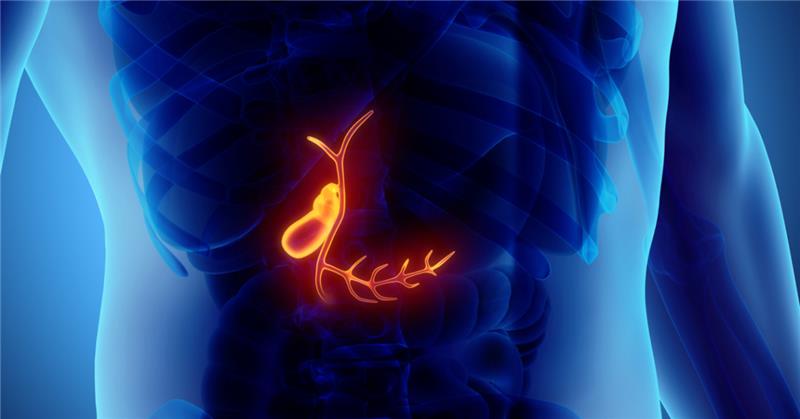
What Are the Treatment Options for Gallbladder Cancer?
Gallbladder cancer is a rare but aggressive form of cancer that often goes undetected until advanced stages due to its subtle symptoms. Despite its challenges, advancements in modern medicine have expanded the range of treatment options, providing hope for patients. The best course of treatment depends on factors like the stage of cancer, overall health, and whether the cancer has spread.
Gallbladder Cancer: Understanding The Basics
The gallbladder, a small organ located beneath the liver, plays a vital role in digestion by storing bile. Cancer in this organ usually begins in the inner lining and may spread to other layers or nearby organs.
Common Symptoms: Jaundice, abdominal pain, nausea, and unexplained weight loss are common symptoms. Unfortunately, these signs often appear in later stages, making early diagnosis critical.
Stages of Gallbladder Cancer:
Stage I: Localized cancer confined to the gallbladder.
Stage II-III: Spread to nearby organs or lymph nodes.
Stage IV: Advanced cancer that has metastasized to distant parts of the body.
Identifying the stage helps determine the most suitable treatment approach.
Surgical Treatment Options
Surgery is often the primary treatment for early-stage gallbladder cancer. The type of surgery depends on the extent of the disease.
Cholecystectomy (Gallbladder Removal)
This is the standard treatment for cancers confined to the gallbladder. In minimally invasive procedures, laparoscopic or robotic-assisted surgery offers precision and faster recovery with fewer complications.
Extended Surgery
In cases where cancer has spread beyond the gallbladder, surgeons may remove parts of the liver and nearby lymph nodes. Advanced surgical techniques, including minimally invasive methods, are now making these procedures safer and more effective.
Non-Surgical Treatments for Gallbladder Cancer
For advanced stages or when surgery is not feasible, non-surgical treatments play a pivotal role in managing the disease.
Chemotherapy
- Purpose: Used to destroy cancer cells or shrink tumors, especially in advanced stages.
- Types: Drugs like gemcitabine and cisplatin are commonly used either alone or in combination.
Chemotherapy is often part of a multimodal approach, combined with other treatments to improve outcomes.
Radiation Therapy
- Purpose: Targets cancer cells with high-energy rays to shrink tumors or eliminate remaining cancer cells after surgery.
- Advanced Techniques: Intensity-modulated radiation therapy (IMRT) allows for precise targeting, minimizing damage to surrounding healthy tissues.
Targeted Therapy
- Targeted drugs focus on specific genetic mutations or proteins in cancer cells, reducing side effects compared to traditional chemotherapy.
- These therapies are particularly beneficial for patients with advanced cancer who cannot undergo surgery.
Immunotherapy
- Immunotherapy boosts the immune system’s ability to fight cancer cells.
- While still under research for gallbladder cancer, early results show promise, especially for patients with specific genetic markers.
Palliative Care for Advanced Gallbladder Cancer
When a cure is no longer possible, palliative care focuses on improving quality of life by managing symptoms and complications.
- Pain Management: Medications and nerve blocks help control pain effectively.
- Biliary Drainage: Procedures to relieve blockages in the bile ducts prevent complications like jaundice and infections.
- Nutritional Support: Specialized diets and supplements help patients maintain strength and energy during treatment.
Palliative care is an integral part of cancer management, ensuring comfort and dignity for patients in advanced stages.
The Importance of Early Detection
Early detection significantly improves the chances of successful treatment. High-risk individuals, such as those with a family history of gallbladder cancer, gallstones, or chronic inflammation, should undergo regular screenings.
- Imaging Tests: Ultrasounds, CT scans, and MRIs help identify abnormalities in the gallbladder.
- Biopsies: Tissue samples confirm the diagnosis and determine the cancer’s stage.
Raising awareness about early warning signs and regular check-ups can save lives by catching the disease at a curable stage.
Emerging Trends in Gallbladder Cancer Treatment
Advancements in research and technology continue to revolutionize the treatment of gallbladder cancer.
- Robotic-Assisted Surgeries: These allow for greater precision, reduced recovery times, and fewer complications, making surgery a viable option for more patients.
- Genomic Medicine: Genetic testing of tumors enables personalized treatment plans, targeting the specific mutations driving cancer growth.
- Combination Therapies: Combining chemotherapy, radiation, and targeted therapies has shown improved survival rates for advanced-stage patients.
These innovations offer hope and better outcomes for patients facing this challenging disease.
Expert Care Makes All the Difference
While gallbladder cancer remains a complex and aggressive condition, advancements in treatment options, particularly minimally invasive surgery and targeted therapies, are providing new possibilities for patients. Early detection, comprehensive care, and personalized treatment plans are crucial to improving outcomes and quality of life.
Dr. Santhosh Anand, a highly skilled surgical gastroenterologist based in Chennai, specializes in minimally invasive procedures for gastrointestinal cancers, including gallbladder cancer. His expertise and patient-focused approach ensure that each individual receives tailored care, offering the best chance for recovery and improved well-being.

